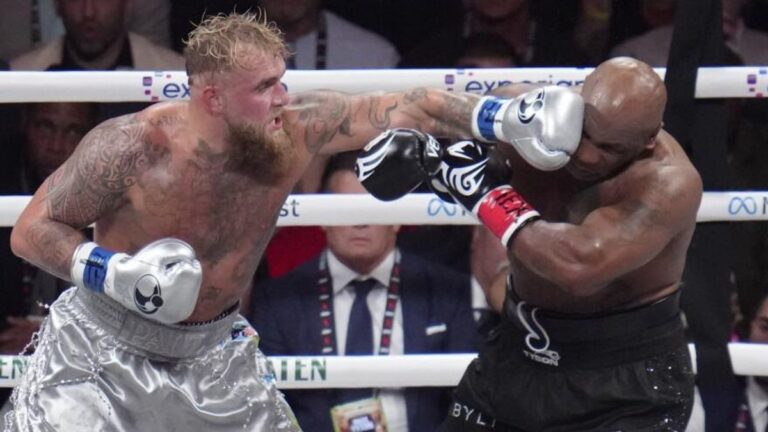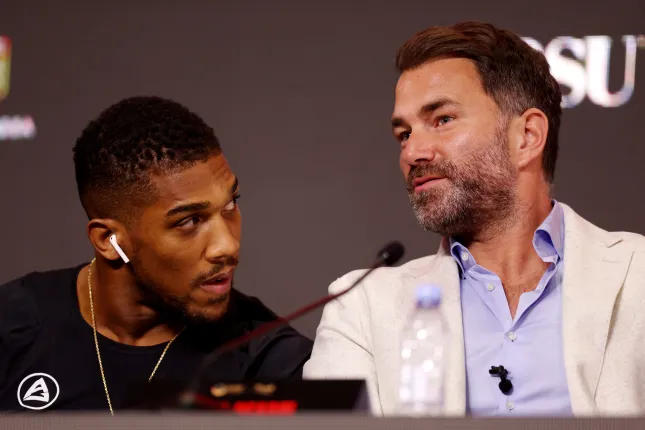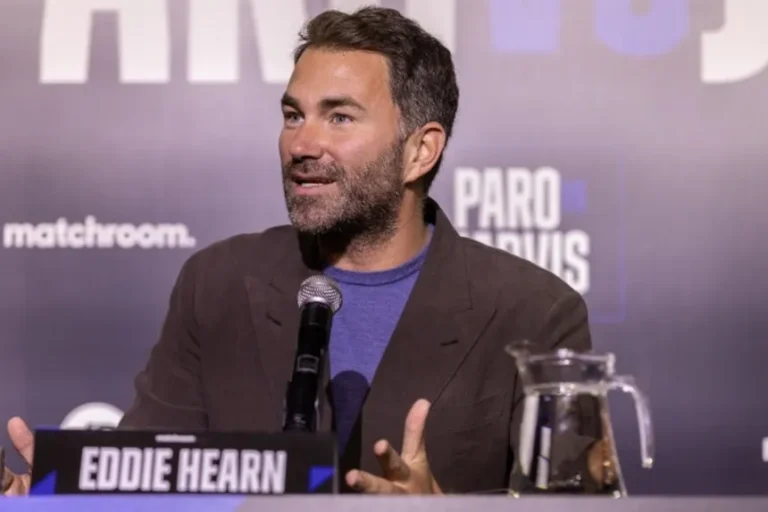Eddie Hearn, a name synonymous with bold moves and high-stakes negotiations in the boxing world, is once again making headlines with his relentless push to secure a blockbuster showdown between Shakur Stevenson and Gervonta “Tank” Davis. While fans have been clamoring for the fight, the path to making it a reality has been anything but smooth. What makes Hearn’s determination even more intriguing is the apparent shift in Stevenson’s tone—an unusual hint of concession from a fighter known for his confidence and skill. Yet, despite these signals, Hearn remains undeterred, pressing forward with the belief that a Stevenson-Davis clash could become one of the most lucrative and electrifying events in modern boxing.
At the heart of Hearn’s push is his ability to see beyond the noise and understand the business of boxing. The rivalry between Shakur Stevenson and Gervonta Davis is not just about two undefeated champions; it represents a collision of two distinct styles and personalities. Stevenson, a slick, defensive mastermind, contrasts sharply with Davis’ explosive power and aggressive approach. The potential matchup is the kind that captures the imagination of fans—offering a classic chess-versus-power showdown that could deliver fireworks in the ring. Hearn knows that such a fight would not only generate massive pay-per-view numbers but also draw global attention to the sport. For Hearn, this is more than just another fight—it’s an opportunity to shape the narrative of modern boxing and solidify his position as one of the sport’s most influential promoters.
What makes the situation even more compelling is Shakur Stevenson’s recent comments, which some interpret as a sign of wavering confidence. Known for his brashness and unshakable belief in his abilities, Stevenson’s subtle shift in tone has sparked speculation about whether he is having second thoughts about facing Davis. Some observers suggest that Stevenson, despite his technical brilliance, recognizes the unique danger that Davis poses—a fighter who has made a career of delivering devastating knockouts. Others argue that Stevenson’s comments are simply part of the negotiation dance, a strategic move to increase leverage and secure a better deal. Whatever the case may be, Hearn’s persistence signals that he is not ready to let this potential super-fight slip away.
From Hearn’s perspective, timing is everything. With the boxing landscape constantly evolving, he understands that major fights must be made while the demand is at its peak. Both Stevenson and Davis are in their primes, and a matchup between them would not only define their legacies but also inject fresh energy into the lightweight division. Moreover, with other major promoters also vying for control of marquee matchups, Hearn’s aggressive pursuit of this fight reflects his ambition to remain at the forefront of the sport. Despite the challenges—whether it’s Stevenson’s hesitation, promotional politics, or the logistical hurdles of making cross-promotional fights—Hearn’s track record suggests that he thrives in high-pressure situations and will stop at nothing to make history.
Ultimately, the question remains: Can Eddie Hearn turn his vision into reality? While Stevenson’s hints at surrender may raise doubts, Hearn’s relentless drive suggests that the fight is far from dead. If Hearn succeeds in bringing these two titans together, it could become the defining event of this generation’s lightweight era—a battle where skill meets power, and where one fighter’s will to win may ultimately overcome the other’s desire to avoid defeat. As the negotiations continue behind closed doors, one thing is certain: Eddie Hearn’s push for Stevenson vs. Davis is more than just a business move—it’s a statement that the biggest fights in boxing are still worth fighting for.



